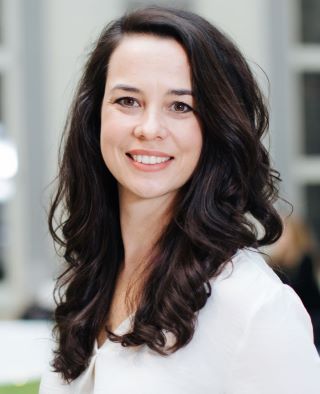Cultivating Sustainability: Postdoctoral Research into the Development of Vertical Farming
Hello there, Maria Bustamante!

Maria Bustamante is a postdoctoral researcher at SEED, and a member of KTH FOOD faculty. She researches the intersection of sustainability and digitalization in the agri-food sector, focusing on vertical farming solutions and their integration into the food retailing ecosystem. She investigates the development of sustainable business models, whilst concurrently assessing the impact these models have on other actors in the agri-food sector. Researching how high-tech farming solutions can become viable is a key factor in the development of sustainable farming solutions.
The social aspect as a driver
The societal elements of the food system are a primary interest of hers. “I’m particularly interested in the social elements, for example the values that drive decisions about technologies. For me, if we want to see change in the agri-food industry, then we can’t rely on the same frameworks focused on yields and return on investment that have historically driven investment decisions about technology. We need broader evaluation frameworks that incorporate elements related to health, environment, and well-being” Bustamante comments.
With social elements in mind, Maria Bustamante landed on furthering her academic career at KTH with an interest in high-tech applications of urban food production. With extensive experience working with marketing and strategy, primarily focusing on entrepreneurs, technology, and economic development, Bustamante happened upon the field of Agri-Tech. She was fascinated by the “opportunities and challenges related to technological development and food production… for a former farm girl turned urbanite, it was so fun to think about how these worlds should collide and complement each other,” she mentions.
Progress through collaboration
The food system is complex, so connecting researchers and actors with different perspectives is essential to improving food systems, according to Bustamante. “I hope that other researchers find my work interesting and that I can continue to grow the network of researchers that I work with since I think collaboration is vital to improving our food system. On that theme, I also strive to work with both established industry actors and new agri-food tech start-ups because I think both perspectives are incredibly important if we’re going to make the shift that is needed to create a more sustainable and just food system” she says.
KTH FOOD encourages interdisciplinary collaboration between research, businesses, and the public sector in order to achieve a resource-efficient and fair food system from farm to fork, which was a main driver for Bustamante to join. “I love that KTH FOOD involves so many people across different schools and disciplines. I think it’s so important to listen and learn from others that have another perspective or work in areas that are seemingly unrelated to your own. I think when you take the time to meet and discuss with a broad range of people is when you truly get inspired and push your own thinking forward,” she concludes.
Through her research, Maria Bustamante is bridging the gap between research, technology, and society; because food system sustainability is about more than just yields and profits - it’s about creating a system for people.
